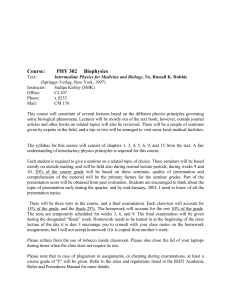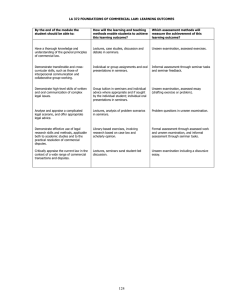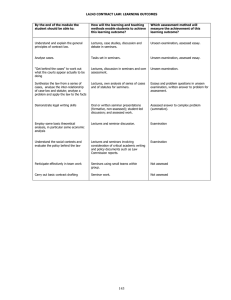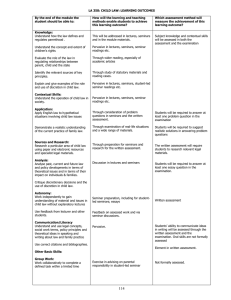LA 205: INTERNATIONAL LAW: LEARNING OUTCOMES
advertisement
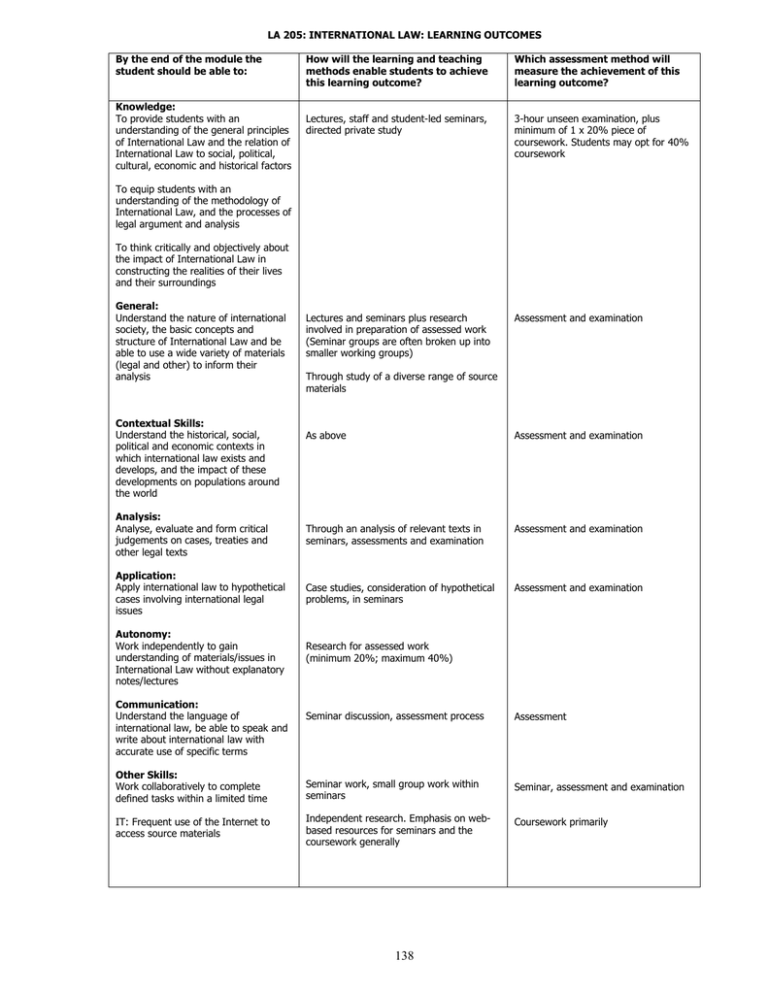
LA 205: INTERNATIONAL LAW: LEARNING OUTCOMES By the end of the module the student should be able to: Knowledge: To provide students with an understanding of the general principles of International Law and the relation of International Law to social, political, cultural, economic and historical factors How will the learning and teaching methods enable students to achieve this learning outcome? Which assessment method will measure the achievement of this learning outcome? Lectures, staff and student-led seminars, directed private study 3-hour unseen examination, plus minimum of 1 x 20% piece of coursework. Students may opt for 40% coursework Lectures and seminars plus research involved in preparation of assessed work (Seminar groups are often broken up into smaller working groups) Assessment and examination To equip students with an understanding of the methodology of International Law, and the processes of legal argument and analysis To think critically and objectively about the impact of International Law in constructing the realities of their lives and their surroundings General: Understand the nature of international society, the basic concepts and structure of International Law and be able to use a wide variety of materials (legal and other) to inform their analysis Contextual Skills: Understand the historical, social, political and economic contexts in which international law exists and develops, and the impact of these developments on populations around the world Through study of a diverse range of source materials As above Assessment and examination Analysis: Analyse, evaluate and form critical judgements on cases, treaties and other legal texts Through an analysis of relevant texts in seminars, assessments and examination Assessment and examination Application: Apply international law to hypothetical cases involving international legal issues Case studies, consideration of hypothetical problems, in seminars Assessment and examination Autonomy: Work independently to gain understanding of materials/issues in International Law without explanatory notes/lectures Communication: Understand the language of international law, be able to speak and write about international law with accurate use of specific terms Research for assessed work (minimum 20%; maximum 40%) Seminar discussion, assessment process Assessment Other Skills: Work collaboratively to complete defined tasks within a limited time Seminar work, small group work within seminars Seminar, assessment and examination IT: Frequent use of the Internet to access source materials Independent research. Emphasis on webbased resources for seminars and the coursework generally Coursework primarily 138
